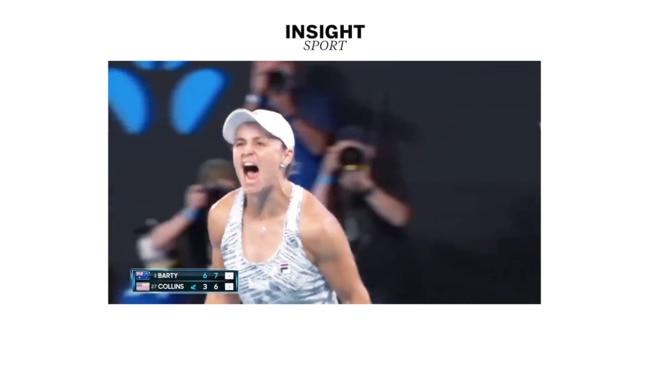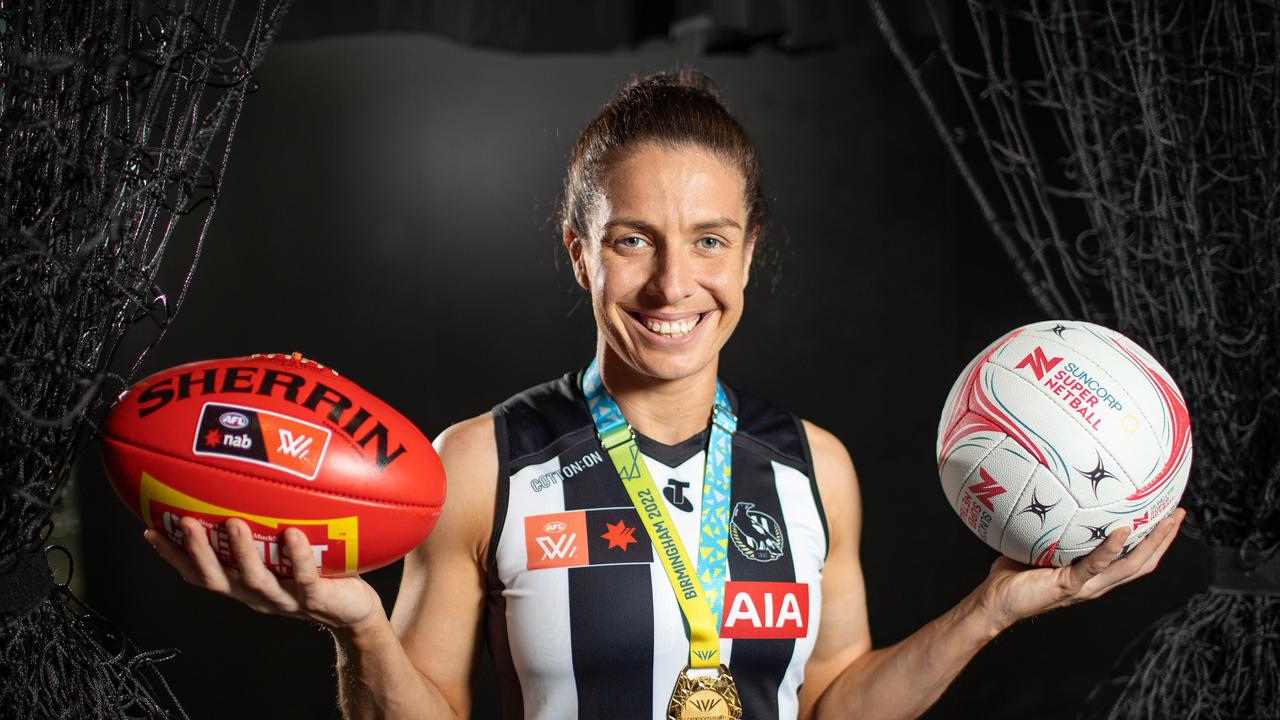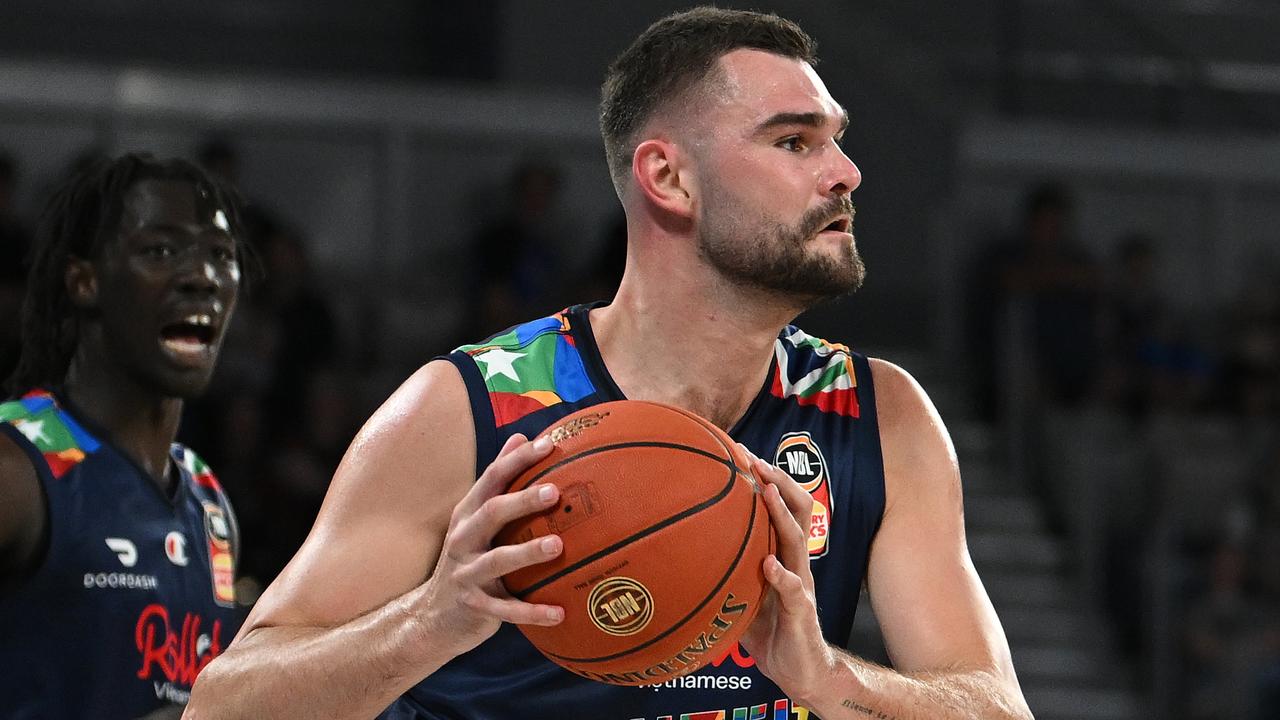
When Megan Schutt and Ash Brazill talk about their families, Sharni Smale dons her rainbow headgear to run on to the rugby field or Olympic gold medallist Nat Cooke discusses her 21-year relationship with her wife, it’s easy to think elite sport is a safe and welcoming place for gay athletes.
Much of the time, now, that’s true – for women at least.
But the increase in the number of people – particularly women – willing to share their true selves in their often high-profile roles as professional athletes, masks the fact that coming out often remains a challenging prospect in cultures where diversity has not always been cherished.
Read Next
Six elite athletes have shared their stories with Insight, most in an effort to show others they are not alone, that their sexual identity and preference will not hinder their sporting ambitions and that dropping the veil of secrecy that has been used as a self-defence mechanism for much of their lives can not only be freeing, but performance enhancing.
But they warn that work still needs to be done – by clubs and sporting organisations, administrators and fans – to ensure others have what amounts to a safe working environment.
The Australian Government set a global precedent when it issued national “guidelines to address homophobia and sexuality discrimination in sport” in 2000 but more than two decades on, athletes continue to face battles both within their sports and in society to be widely accepted.
Christine Granger, chief executive of Proud 2 Play, a group that works with all levels of sport to increase LGBTIQ+ engagement, said it was impossible to expect organisations to change the views of every person involved in their sports.
But consistency of action and support allowed athletes to see they would be backed.
“For a lot of players (being comfortable to come out) is about knowing that there’s support around them,” Granger said.
“It’s unrealistic … to expect an organisation to eradicate homophobic and transphobic language (in every space, including among fans). It’s almost impossible because you cannot change the views and opinions of every single person out there.
“But what I do want to see as an individual is how an organisation responds to that kind of abuse. I think that for players, starting to see organisations respond differently to the way that they deal with this and actually take it more seriously … will hopefully mean that we can have more players feel comfortable to be themselves.”
Being publicly out in sport has been no easy journey for women.
But there are overwhelmingly more out women in sport then men – both in Australia and around the world.
“The recent coming out of A-League player Josh Cavallo and the NBL’s Isaac Humphries notwithstanding, team sport, in particular, for men, has never been seen as a safe space to be gay,” Granger said.
“Whether that’s around hyper masculinity, toxic masculinity, around what it is to be a man and the stereotypes that exist around being a gay man and what that represents, probably play a part in why it’s so difficult for men, particularly in team sports, to come out,” she said.
“I do think there’s an element of: ‘This is how society thinks that you as a man should behave and meet that expectation’, or coming out as gay means that you’re suddenly seen as weak or not a proper man. That’s going to be very challenging.”
While organised and professional sports opportunities have boomed in recent years, most men now at the elite level have been involved since they were boys in a system that has reinforced homophobic language and abuse and an idea of how they were meant to behave.
“The homophobic abuse that exists within (male) sporting environments, I mean, I wouldn’t be coming out,” Granger said.
“It’s an element of: ‘Am I safe?’ and ‘I don’t feel safe’, so I think that there’s a few different elements at play. And we know that women’s sport has just been a safer place for a longer period of time.”
It’s why genuine pride rounds, backed by organisational change, are still needed – in both men’s and women’s competition.
Former Queensland Firebirds netballer Laura Clemesha, whose decision to come out publicly while an active player was helped in part by Brazill’s trailblazing, said Pride rounds were essential for sports.
“Often it’s the more visible cases that we do see in social media, or in celebrity life of LGBTQIA+ people who are celebrated and who have gained what seems to be mainstream acceptance and they’re loved and embraced by their communities,” said Clemesha, now a psychologist who works for management consultancy firm Performance Frontiers.
“But what we don’t really see is coverage or news about the day to day difficulties that people have battling with acceptance and homophobia or transphobia.
“It’s sometimes easy to think that we’ve crossed the finish line and we’re there … but that’s not the reality for so many people. They’re the people we need to speak to, to give that representation, to give that hope, and try and support them to be a little bit brave.”
But Granger said only when backed by genuine action and education could things like Pride celebrations lead to change.
And when that change leads to an environment in which people feel comfortable to reveal themselves fully, performance will follow.
“Yes, the job of athletes at an elite level is to perform and win competitions, but they’re people at the end of the day,” Granger said.
“And we need to see the person as a whole person. We know that if a person can be their whole self, that they’re going to perform … and they can’t do that if they have this anxiety going on in the background.”
Read Next
Comments
Stay connected with us on social media platform for instant update click here to join our Twitter, & Facebook
We are now on Telegram. Click here to join our channel (@TechiUpdate) and stay updated with the latest Technology headlines.
For all the latest Basketball News Click Here



